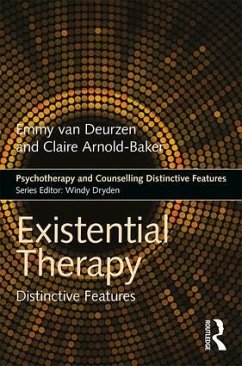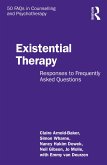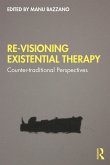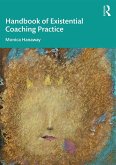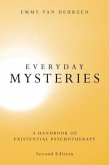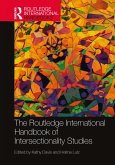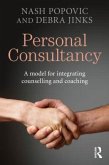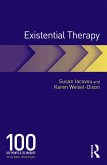Existential Therapy: Distinctive Features offers an introduction to what is distinctive about this increasingly popular method. Written by two practicing existential psychotherapists, with many years' experience, it provides an accessible, bitesize overview of this increasingly used psychological therapy. Using the popular Distinctive Features format, this book describes 15 theoretical features and 15 practical techniques of Existential Therapy.
Existential Therapy will be a valuable source for for psychotherapists, clinical, health and counselling psychologists, counsellors, psychiatrists, and all who wish to know more about the existential approach.
Existential Therapy will be a valuable source for for psychotherapists, clinical, health and counselling psychologists, counsellors, psychiatrists, and all who wish to know more about the existential approach.
Van Deurzen and Arnold-Baker introduce readers to the world of existential theory and practice, and give them a sound grounding in the field and the inspiration to explore the terrain they outline further and in more dept. They provide that most difficult thing - a clear and concise guide to the theory and practice of existential therapy. This book will be a valuable resource for anyone - whether they are a psychotherapy trainee, seasoned practitioner, or lay person - who seeks an accessible introduction to the contribution of existential philosophy and psychology to understanding what it means to be human.
Professor Simon du Plock, Middlesex University
Professor Simon du Plock, Middlesex University

